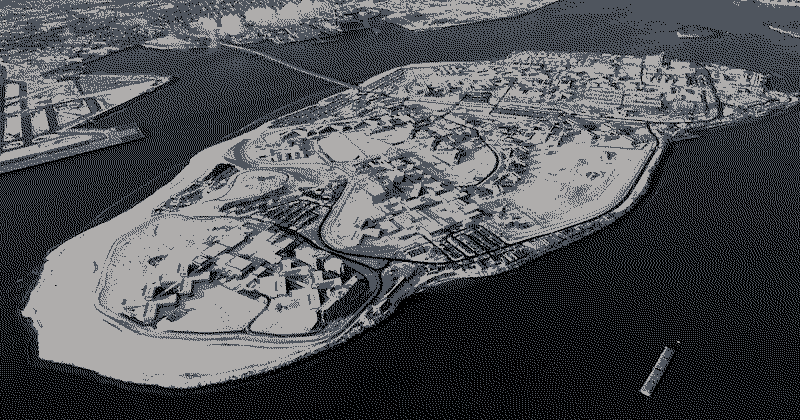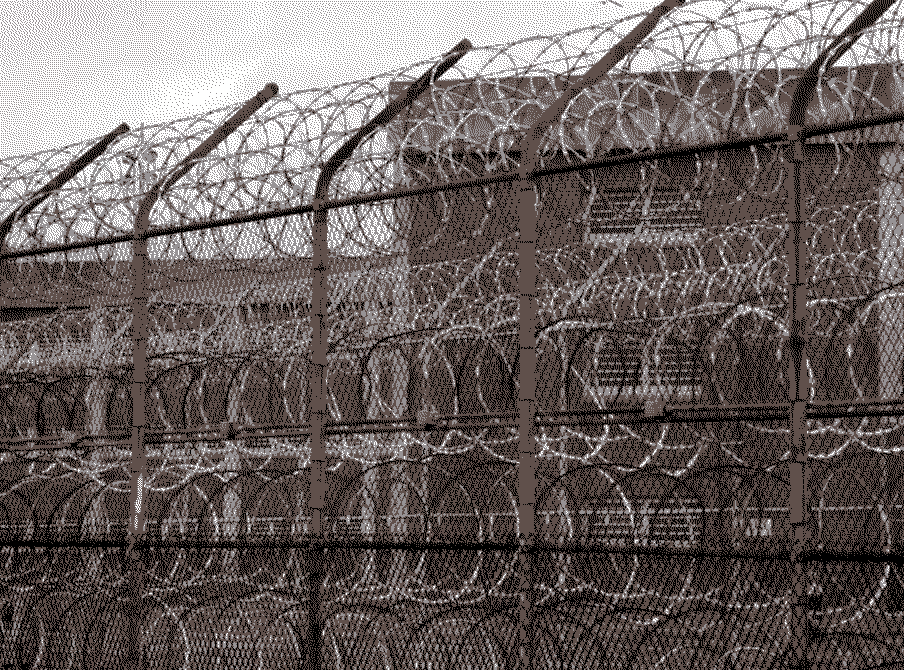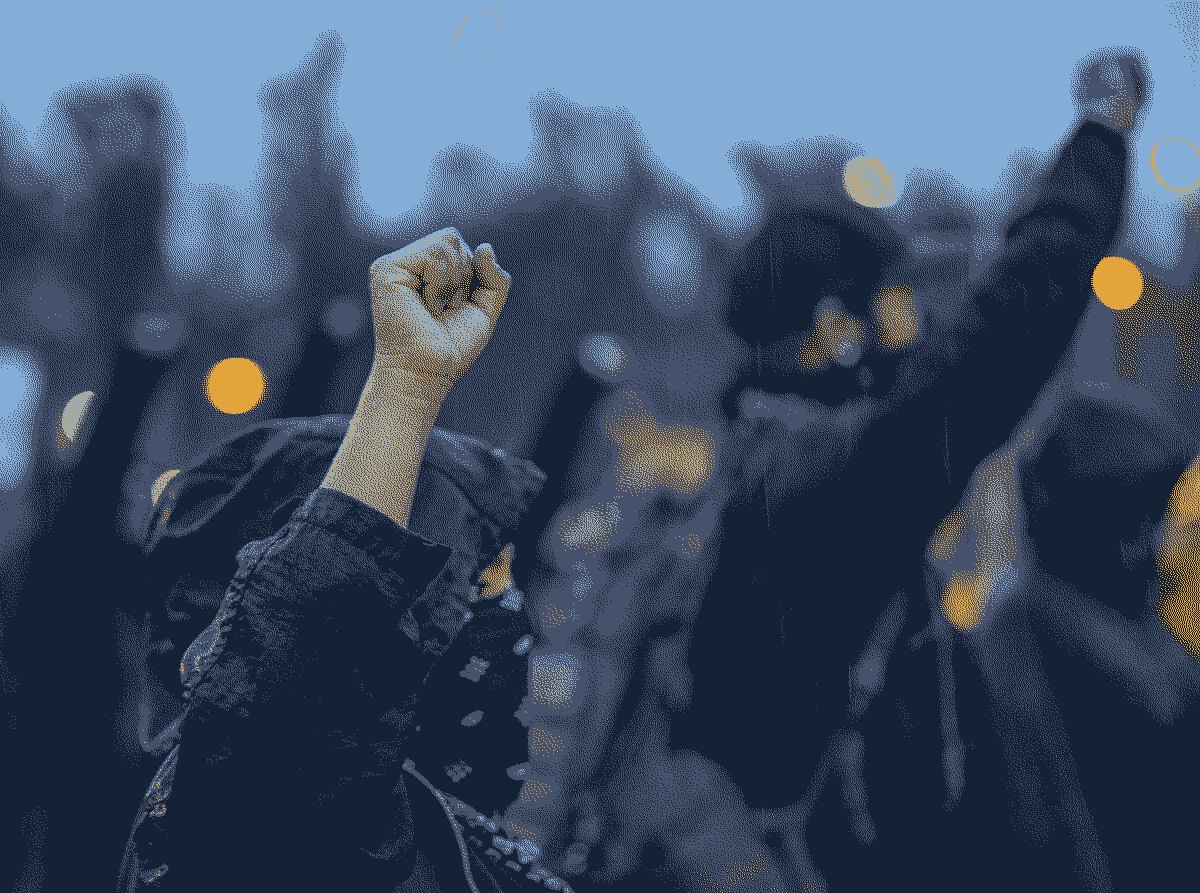Mercy, Transformation, Abolition, Hope
Mercy
When recently asked about the utility of suffering, one-of-a-kind rock star and one-time prison-film actor1 Nick Cave responded, “we either transform our suffering into something else, or we hold on to it, and eventually pass it on.” He continued:
In order to transform our pain, we must acknowledge that all people suffer. By understanding that suffering is the universal unifying force, we can see people more compassionately, and this goes some way toward helping us forgive the world and ourselves. By acting compassionately we reduce the world’s net suffering, and defiantly rehabilitate the world. It is an alchemical act that transforms pain into beauty. This is good. This is beautiful.
To not transform our suffering and instead transmit our pain to others, in the form of abuse, torture, hatred, misanthropy, cynicism, blaming and victimhood, compounds the world’s suffering. Most sin is simply one person’s suffering passed on to another. This is not good. This is not beautiful.
The utility of suffering, then, is the opportunity it affords us to become better human beings. It is the engine of our redemption.

Rikers Island prison complex from above.
Cave has also been asked2 about mercy. He responded:
Mercy is a value that should be at the heart of any functioning and tolerant society. Mercy ultimately acknowledges that we are all imperfect and in doing so allows us the oxygen to breathe — to feel protected within a society, through our mutual fallibility. Without mercy a society loses its soul, and devours itself.
If suffering is an opportunity, and if “life is suffering”3 as the Buddha said, then we are all faced with constant opportunities to take that suffering and utilize it for transformation.
We also have those opportunities as a society. Conflict is inevitable, and when we hurt one another, we suffer collectively.
The United States criminal justice system4 falls squarely within the cynical and misanthropic camp5 of Cave’s dichotomy of suffering. Our punitive system, intended to disincentivize wrongdoing, in practice fails to stop harm, revealing instead our culture’s darker, more violent streak. Our insatiable thirst for retribution drives a racist, sexist, classist, ableist justice system that cares little for the truth or the reality of people’s circumstances.
Right now, there are occasions of mercy in our system, but they are skewed. Police officers are given the benefit of the doubt, for example. Young white men receive reduced sentences due to their “potential”. People with wealth who can pay for a high-powered defense greatly increase their chances of avoiding incarceration.
Where there is mercy in our system, it is often not just. And where there is supposed justice, there is no mercy.
What kind of justice do we want? What kind do we need? Beliefs are choices, and I choose to believe that a less punitive, more beautiful path is available to us. A path of transformation.

A barbed wire fence outside of a brick prison building.
Transformation
Many people make mistakes. But only some are criminalized. Google spies on billions of people? No problem. Wells Fargo defrauds people? The lawless opportunists of the 2008 recession? Government corruption and white collar crime? Despicable, maybe - but not criminal. The perpetrators continue to walk free.
Meanwhile, communities of color in the US are still dealing with White supremacy and the legacies of chattel slavery and settler colonialism. An interwoven trap of poverty, criminology, racism, incarceration, crony capitalism, poor education, and pseudo-oligarchical government (among other things) preys on young Black men, and people of color more broadly, in the United States. Going back centuries, Black and Indigenous people of color have had to consider how to deal with harms in their communities, since any encounter with the authorities, no matter how straightforward or nonviolent, can be deadly for them.
Transformative justice centers the community and seeks to respond to violence without creating more violence. Mia Mingus describes why this is important:
State responses to violence reproduce violence and often traumatize those who are exposed to them, especially oppressed communities who are already targeted by the state. It is important to remember that while many people choose not to call the police, many communities can’t call the police because of reasons such as fear of deportation, harassment, state sanctioned violence, sexual violence, previous convictions or inaccessibility.
Transformative justice responses do not involve the government - especially the police. This concept is foreign to many people, and White people especially.6
While it may sound like a fairy tale for folks from under-policed communities, for marginalized communities the transformative justice framework is an essential tool for keeping each other safe. As Mia continues, this approach “works to build alternatives to our current systems which often position themselves as protectors, while simultaneously enacting the very forms of violence they claim to condemn.”7
Transformative justice is an essential tool for marginalized communities today, but it can also be a guide for our future. As an abolitionist framework, transformative justice seeks to build new systems while dismantling the old.

Two people wearing masks with their fists in the air.
Abolition
When you talk to folks about prison abolition, a lot of the time it can sound really destructive. After all, abolish is a mid-15th century word descended from the Old French abolir and Latin abolere, which means “to destroy, efface, annihilate, cause to die out, or retard the growth of” something. It is the opposite of adolere - “to grow or magnify.” The Century Dictionary in 1900 said that abolish…
…is a strong word, and signifies a complete removal, generally but not always by a summary act. It is the word specially used in connection with things that have been long established or deeply rooted, as an institution or a custom : as to abolish slavery.
The focus of the definition on “complete removal” and on a “summary act” make abolitionary movements sound very dangerous and destructive. Abolitionists themselves, however, are very clear: building new systems is just as important as removing harmful ones. Abolitionists seek to cultivate new ways, new approaches, new models for justice. In fact, it is absolutely central to their work:
[Prison industrial complex] abolition is a vision of a restructured society in a world where we have everything we need: food, shelter, education, health, art, beauty, clean water, and more. Things that are foundational to our personal and community safety.
– Mariame Kaba
Abolitionists are builders. And what we’re building, as Max Mishler said, is “a society where incarceration would no longer even be possible” […] ‘abolition’ is a verb: it is the dual-pronged project of tearing down and building up, the dismantling of life-sucking systems alongside the construction of life-giving ones.
– Micah Herskind
What I love about abolition and now use in my own thinking - and when I identify myself as an abolitionist, this is what I have in mind - is the idea that you imagine a world without prisons, and then you work to try to build that world.
– James Forman, Jr., via Rachel Kushner
Abolition is about presence, not absence. It’s about building life-affirming institutions.
– Ruth Wilson Gilmore
Abolition goes beyond just ending modern slavery and the death penalty, encompassing not only the full system of prisons and jails, but also the concepts and realities of “justice,” law, and policing. Abolition goes even beyond those systems, to the beliefs that underpin our society, like White supremacy, caste, and other forms of injustice across the world.
In this highly polarized political environment in the US, it can feel like there are only two sides. But something I want to make clear: in a world where prisons are abolished, police officers like Derek Chauvin would experience the same merciful, rehabilitative, transformative system. I believe that all incarcerated people - even those that some anti-racist folk would define as guilty in our current system - deserve the chance to show that they can rejoin society. As Bryan Stevenson says, “each of us is more than the worst thing we’ve ever done.”
As Black Lives Matter has emphasized, putting Chauvin away does not solve the problem of police brutality. And it also does not actually solve the problem of Chauvin. Sure, he should never be a police officer again. But could he scan tickets at a ball game? Could he sell you a house someday? Could he cook at a local bar? Could he get a law degree or M.D., and save someone’s life? Absolutely, he could. I believe that with proper rehabilitation in a merciful, transformative society, he - and any “criminal” - could do so, and probably much, much more.

The sun setting over an ocean beach.
Hope
Abolition calls not for just a “negative” justice, but the germination of something new. The movement goes beyond destruction, to construction; beyond dismantlement, to cultivation; beyond justice, to liberation, and transformation toward a future where all can thrive.
Thus abolition, grounded in action, is a courageous and hopeful movement. Being part of such a movement can be amazing. Alice Walker writes about it beautifully in Anything We Love Can Be Saved:
There is always a moment in any kind of struggle when one feels in full bloom. Vivid. Alive. One might be blown to bits in such a moment and still be at peace. Martin Luther King, Jr., at the mountaintop. Gandhi dying with the name of God on his lips. Sojourner Truth baring her breasts at a women’s rights convention in 1851. Harriet Tubman exposing her revolver to some of the slaves she had freed, who, fearing an unknown freedom, looked longingly backward to their captivity, thereby endangering the freedom of all. To be such a person or to witness anyone at this moment of transcendent presence is to know that what is human is linked, by a daring compassion, to what is divine. During my years of being close to people engaged in changing the world I have seen fear turn into courage. Sorrow into joy. Funerals into celebrations. Because whatever the consequences, people, standing side by side, have expressed who they really are, and that ultimately they believe in the love of the world and each other enough to be that - which is the foundation of activism.
Just as importantly, we must remember that things will not always be easy. Mariame Kaba says that “hope is a discipline.” What does that mean? Her take:
It’s less about “how you feel,” and more about the practice of making a decision every day, that you’re still gonna put one foot in front of the other, that you’re still going to get up in the morning. And you’re still going to struggle […] It’s work to be hopeful. It’s not like a fuzzy feeling. Like, you have to actually put in energy, time, and you have to be clear-eyed, and you have to hold fast to having a vision. It’s a hard thing to maintain. But it matters to have it, to believe that it’s possible, to change the world.
I hope and believe a world without prisons and policing is not only possible but essential. Let’s get started.
I feel safe even in the midst of my enemies; for the truth is powerful and will prevail.
– Sojourner Truth
~
Not sure what to think? Let’s talk about it.
Want to learn more? I’ve barely scraped the surface. Here are some places to start:
- “So You’re Thinking About Becoming an Abolitionist” by Mariame Kaba
- “What Abolitionists Do” by Dan Berger, Mariame Kaba, and David Stein
- Resources from Critical Resistance
- “Is Prison Necessary? Ruth Wilson Gilmore Might Change Your Mind” by Rachel Kushner
- “What We Mean When We Say Abolish the Police” by K Agbebiyi
- “Incarceration Is Always a Policy Failure” by Jonathan Ben-Menachem
- Direct Action for Prison Abolition by Community Justice Exchange
- Micah Herskind’s Prison Abolition Resource Guide
~
Addendum, Nov. 30, 2021:
Nick Cave has again written on this subject, in his own way, in a response to a poor fellow who feels they cannot forgive themself:
To forgive is perhaps the supreme human capacity, it can feel counter-intuitive yet it is wholly crucial to our survival, not just of our own selves, but also of our species in general. It is what Derrida calls, ‘a madness of the impossible’. In short, we must strive to forgive the unforgivable.
[…]
It is worth bearing in mind that we are mostly good people who do bad things — all of us — and forgiveness, as contrary to our instincts as it so often feels, is the crucial component that can usher us out of the darkness and back to the world.
Full letter here.

-
Back in the late eighties, Cave starred in the film Ghosts… of the Civil Dead, a thriller where a private prison manipulates both prisoners and guards, amplifying violence in order to convince the government that a new, more “secure” prison is required. ↩︎
-
The latter part of his response regards tolerance and cancel culture, which unfortunately was opportunistically covered by Fox News. ↩︎
-
Really, the Buddha said life is dukkha, which has a broader meaning, but I’ll keep the common English translation here since it is so convenient. ↩︎
-
In this piece, the justice system and prisons stand in for a variety of interrelated institutions including jails, detention centers, psychiatric institutions, policing, immigration restriction, and state surveillance. This is sometimes called the prison industrial complex (PIC). ↩︎
-
Some examples: after facing unjust cash bail systems and accepting garbage plea deals, individuals suffer in profit-driven corporate prisons and federally-subsidized state penitentiaries. Their sentences are way too long - mandated so through “tough on crime” policy - and sometimes many times longer than their life outside. Mental health and addiction issues are often overlooked. Children are put behind bars at an absurd rate via the school-to-prison pipeline. Mistreated by guards (especially by male guards in female prisons), they can face month after month of self-perpetuating, inescapable solitary confinement. They’re put to work - government slave labor. Their existence bolsters the political power and economies of rural White counties, but they no longer have the right to vote. They sit on death row, for decades, awaiting the chair to pay (with their life) for their actions ↩︎
-
I appreciate Mariame Kaba’s response to the question of whether or not to call call the cops if one’s life is in danger: “Abolition does not center that question. Abolition…pushes us to creatively consider how we can grow, build, and try other avenues to reduce harm.” ↩︎
-
I recommend reading Mia’s full description of TJ, along with the rest of her writing. She’s much more knowledgeable about this, as are plenty of other folks, like Mariame Kaba. ↩︎